Table Of Contents:
- Understanding On-Page SEO
- Keyword Research for Automotive SEO
- Optimizing Meta Tags for Automotive Websites
- High-Quality Content for Automotive Sites
- User Experience and Site Structure
- Optimizing URLs for Better SEO
- Image Optimization Techniques
- Internal Linking Strategies
- Integrating social media platforms
- Monitoring and Improving Your SEO Performance
- Final thoughts
Alright, gearheads and digital marketers alike, buckle up! Today, we’re diving deep into the engine room of automotive websites, exploring the nuts and bolts of on-page SEO techniques. This isn’t just about making your site look pretty for Google; it’s about turbocharging your online presence so that when potential customers are searching for their next ride, your site speeds past the competition. And let me tell you, in the fast-paced digital highway of the automotive industry, you want to be in the pole position.
Understanding On-Page SEO
So, what’s on-page SEO? Imagine you’re tuning a car for a race. On-page SEO involves optimizing your website’s content and structure to help search engines better understand and rank your pages. It differs from off-page SEO, which includes external factors such as backlinks, and technical SEO, which concentrates on the backend structure of your website. For automotive sites, getting on-page SEO right means more visibility for your brand and a better experience for your users.
Keyword Research for Automotive SEO
The first step in our SEO tune-up is keyword research. Why? Because knowing the right keywords is like having the precise GPS coordinates for success in the vast digital landscape. Finding keywords that potential buyers are typing into search engines is extremely important. Tools like Google Keyword Planner and SEMrush are your best friends here, helping you uncover golden keywords specific to the automotive industry. And don’t forget about long-tail keywords – those specific, often longer queries that really get down to what your audience is looking for.
Optimizing Meta Tags for Automotive Websites
Next up, let’s talk meta tags – the title tags and meta descriptions.
These are like the signboards of the SEO realm, the initial element a potential user views in search outcomes. Creating effective meta tags with relevant keywords can determine whether a user clicks on a webpage or continues scrolling. Imagine your title tag as the headline of an ad; it needs to be catchy, informative, and relevant. What about your meta description? That is your brief sales pitch; ensure it is impactful.
High-Quality Content for Automotive Sites
Content is king, even in the automotive world. But we’re not talking about just any content; we need high-octane, engaging, and informative content that speaks directly to your audience’s needs and interests. This is the place to display your knowledge, providing in-depth insights and information that delve deeper.It’s also where you naturally incorporate those carefully chosen keywords, but in a way that feels as smooth as a V8 on an open road.
User Experience and Site Structure
User experience (UX) is the road condition of your website. If the road is full of potholes (i.e., bad UX), no one’s going to enjoy the ride. A well-structured site that’s easy to navigate is like a smooth highway; it makes the journey pleasant and keeps visitors coming back. Don’t overlook mobile optimization either; with more and more searches happening on smartphones, your site needs to perform flawlessly across all devices.
Optimizing URLs for Better SEO
URLs might seem like small potatoes, but they’re actually critical signposts for both users and search engines. A clean, descriptive URL structure can boost your SEO by making it clearer what each page is about. It’s like having a clear, readable map for your site; it guides visitors exactly where they want to go, without any unnecessary detours.
Image Optimization Techniques
A picture is worth a thousand words, and in the automotive industry, high-quality images can make or break engagement. But large, unoptimized images can also break your site’s speed, which is bad news for SEO. Compressing images and using descriptive alt tags are simple fixes that can dramatically improve load times and accessibility, ensuring your site’s visuals rev up interest without slowing down performance.
Internal Linking Strategies
Internal linking is the GPS system of your website.Assisting search engines and users in exploring your content enhances the importance and credibility of your pages. Think of it as creating a network of roads within your site; the easier it is to travel between related topics, the better the experience for everyone involved.
Integrating social media platforms
Social media serves as the promotional platform for your brand in today’s digital era. Integrating social media with your site doesn’t just boost your SEO; it enhances your visibility and engagement across the board. It’s all about establishing a community where individuals can come together to discuss their love for cars and driving, all while driving traffic to your website.
Monitoring and Improving Your SEO Performance
Now, you can’t just set it and forget it. SEO is an ongoing race. Tools like Google Analytics and Search Console can help you monitor your site’s performance, showing you where you’re winning and where you might need to pit stop and make adjustments.It’s about constantly fine-tuning your strategy to keep up with the ever-changing digital landscape.
Final thoughts
There it is – a detailed manual on on-page SEO for automotive websites. From keyword research and meta tags to content quality and site structure, each element plays a crucial role in driving your site to the top of search engine rankings. And remember, at GoAutomotive Marketing, we’re all about boosting your brand with cutting-edge automotive search engine optimization. So, why not let us help you cross that digital finish line?
Do you have additional inquiries about Automotive Search Engine Optimization? Visit our blog section for further information. Contact our support team via email at marketing@goautomotivemarketing or call 1 (470) 791-9755 to clarify your doubts. The GoAutomotive Marketing Expert Support Team will gladly assist you.





